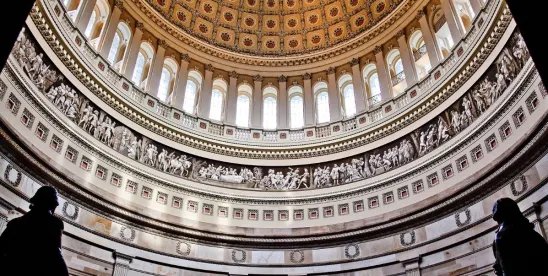On April 17, 2024, the House Education and Workforce Committee is scheduled to hold a hearing to focus on Antisemitism in Higher Education. At the witness table will be the President of Columbia University Dr. Nemat “Minouche” Shafik, a distinguished economist who has led the University since July 1, 2023, as well as two members of Columbia’s Board of Trustees and the Dean Emeritus, Professor David Schizer. Shafik originally declined to testify at the Committee’s hearing on December 5, citing a scheduling conflict. Accordingly, she did not appear alongside the Presidents of Harvard, the University of Pennsylvania (“Penn”), and Massachusetts Institute of Technology (“MIT”), which ultimately led to the resignation of two out of the three presidents.
Shafik’s April 2024 appearance is therefore a continuation of the original hearing. At the same time, Columbia is also facing a Committee inquiry into their response to antisemitic activity on campus, as well as an investigation into a complaint of alleged violations of Title VI of the Civil Rights Act of 1964 that was submitted to the Department of Education Office of Civil Rights.
Although opinions vary widely about whether these inquiries are political in nature or express genuine concerns over the mistreatment of students on Columbia’s campus, Shafik can expect that the Committee will be dogged in its questioning. The Committee’s letter to Columbia University provides some insight into the questions the Committee will ask, and Columbia’s response will inform Committee Member’s questions. The harsh letter cites examples of troublesome incidents reportedly occurring on campus related to these controversies.
Given the high stakes and national attention on this hearing, on the morning of April 17, we will be watching for the following developments:
- Does the Committee issue a report the morning of the hearing, immediately putting the witnesses on defense and setting the tone in the media for the day to come?
- Does the Committee challenge the witnesses for the level of cooperation displayed by the University, in response to the Committee’s investigatory letter?
- In addition to concerns for antisemitism, will the Committee attempt to allege instances of plagiarism against Dr. Shafik?
- Will Members of Congress also probe whether the University has financial ties to China, an issue recently profiled by the Wall Street Journal?
- Is there partisan momentum behind the inquiry, measured by the number of Members who attend and ask questions, which suggests more hearings will be forthcoming?
- Do critics of institutions of higher education amplify the hearing, focusing on pain points, to prolong the news cycle and criticism of the institution?
- Does the Majority deploy clips from the news and prior documentaries targeting the University to extend the news cycle and promote broader public engagement?
- Does the Chair ask Columbia to commit to substantive policy changes on campus or provide indications about what institutions of higher education should be doing to avoid further Congressional scrutiny during these challenging and complicated times?
- How will Shafik’s testimony compare to the presidents who came before her?
Congressional Hearings and Investigations
Congressional Hearings and Investigations are inherently political. This means they are more concerned with the court of public opinion than the court of law. Any target of a high stakes congressional inquiry must prepare a comprehensive response, which starts with preparing for the anticipated hearing questions, but also includes preparing for the unexpected – such as a critical Committee report, leaked documents, and questions about an unrelated topic.
Moreover, a target of Congressional inquiry should understand that Congress works with outside organizations, including sympathetic news outlets and think tanks to carry their message of the day. Accordingly, in addition to murder boards and legal support, it is important to thoughtfully line up an organization’s messaging to respond to the media, as well as empower an institution’s supporters to speak on an institution’s behalf in the days and hours leading up to hearing day and beyond.






 />i
/>i

